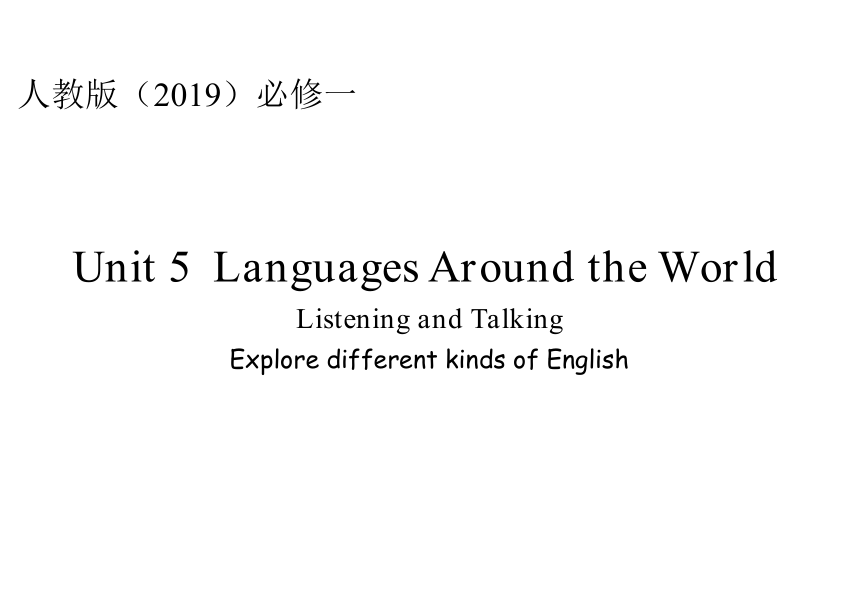(
课件网) 人教版(2019)必修一 Unit 5 Languages Around the World Listening and Talking Explore different kinds of English Learning objectives By the end of this section, you will be able to: 1. identify and use some new words, such as petrol, apartment, and beg; 2. introduce the idea of different kinds of English and explain the differences through the activities; 3. learn about the differences in vocabulary and spelling between British and American English; 4. make a conversation on asking for clarification. Answer the following questions before listening. 1. Which language has the most native speakers in the world English Spanish √ Chinese 2. How about English Does it have the second largest number of native speakers in the world No, it comes the third, after Spanish. L e a d - i n Listening Listen to the first part of the talk. What are the different kinds of English mentioned British English, American English, and Australian English. As many countries speak English as a first language, there are many different kinds of English around the world: British English, American English, Australian English, and many others. Some English learners might ask, “Can English speakers from different countries all understand each other ” The answer is yes. People in these countries can usually understand each other with very few problems. There are differences in vocabulary, pronunciation, and grammar, but those are usually not big problems. However, those differences can cause confusion for non- native English speakers. For example, a student who has learnt British English might not be familiar with the different vocabulary that an American might use. Listen to this conversation between a foreign language student and her American classmate. Listen to the second part of the talk. What are the two pairs of words that the student is confused by Tick them in the boxes. √ semester / term restroom / toilet gas / petrol √ subway / underground Cultural Note “Semester” literally means “six months”, so a school year has two semesters (usually “spring” and “fall” in the US). However, a “term” does not have the same meaning as “semester”, and its meaning can vary between countries and different types of schools. In the UK, schools usually have three terms in a school year: Spring, Summer, and Autumn Terms. Their lengths can vary depending on the type of school. So, this is technically a “trimester”. In Australia, schools commonly have four terms, including a Winter Term. In the UK, semester is sometimes used in describing the school year, but not as commonly as in the US. Amy: Betty: Thank you very much for helping me with my English. You’re welcome! When are you free to meet This semester, I’m free on Tuesday and Thursday after lunch. I’m sorry What does “semester” mean You know, semester—half of a school year. Oh, you mean like a term Yes, like a term. The British say “term”. We usually ... ...

